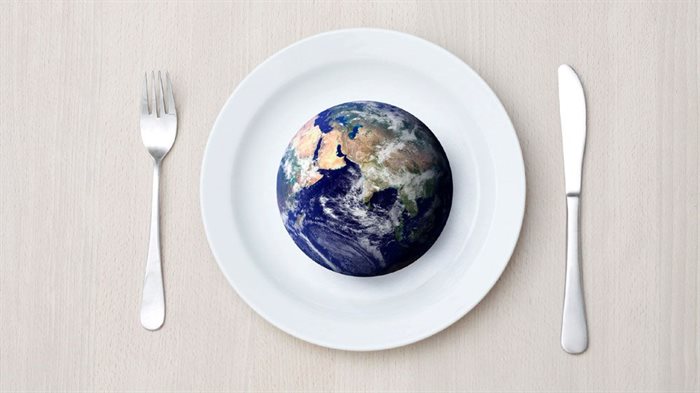Another significant win emanating from COP27 was the announcement of the Global Methane Hub (GMH) partnership which is the first co-ordinated approach to make available methane mitigation funding. The hub will focus on energy, agricultural, and waste sectors, which account for 96% of human-caused methane emissions. “Reducing methane gas is the fastest way to address climate change in the short term. Methane emissions have contributed to roughly 30% of the current warming, causing harm to communities around the globe.” (GMH)
Speaking about this partnership, Lisa Moon, the Global FoodBanking Network (GFN) CEO who represented FoodBanks from all over the world at COP27, of which FoodForward SA is also a member, noted that "the Global Methane Hub will advance the impact of food banks and food recovery for hunger relief and climate protection, since foodbanks provide an immediate response to climate disasters by helping communities adapt to the long-term impact of changing seasons and harvests.” Lisa goes on to say that “foodbanks are among the unsung heroes on the front lines of global climate action.”
In South Africa, more than 10 million tons of food is lost or wasted annually because of inefficiencies along the food value chain, causing copious amounts of harmful carbon emissions to be emitted into the atmosphere. For every ton of food wasted, 14 tons of greenhouse gasses are emitted into the atmosphere (CSIR 2021 Food Waste Prevention and Management Guide).
In their 2021 Food Waste Index report, the United Nation’s Environment Programme (UNEP) notes that “Food loss and waste account for 8-10 percent of global greenhouse gas emissions (GHGs) - contributing to an unstable climate and extreme weather events such as droughts and flooding.”
Inger Anderson, UNEP’s executive director states that “If food loss and waste were a country, it would be the third biggest source of greenhouse gas emissions.”
Climate risks severely impact the lives and livelihoods of vulnerable people and communities. Scientists warn that Africa is already experiencing huge losses and damage, and that this will only escalate with global warming. FoodBanks can play a pivotal dual role in mitigating the effects of climate change and address growing food insecurity.
Another vehicle that can significantly reduce food loss and waste while promoting climate change mitigation / adaptation is Environmental, Social and Governance (ESG) reporting. Using this tool supply chain representatives can readily detect and constructively address the drivers affecting unsustainable production and consumption practices that lead to food loss and waste, and as they identify edible surplus food timeously, it can be donated.
Regrettably, a recent survey released by KPMG reveal that SA CEOs are not taking ESG reporting seriously. KPMG interviewed 50 C-suite executives of listed companies and concludes that “ESG has fallen down the boardroom agenda, and only 8% of SA CEOs are investing money towards adopting a more transparent approach”(KPMG ESG Survey 2022).
Often within large corporations, because of multi-layered bureaucratic structures and compliance and approval procedures, significant amounts of time lapses between when their supply chain decision-makers become aware of and authorise foods to be characterised as surplus (waste), and when the corporate affairs or sustainability divisions are informed to be able to donate this food while it is still good for human consumption.
In order to bridge this disconnect and improve their ESG score, it is imperative for supply chain representatives to explore circularity and diversion strategies that are more robust and sustainable and incorporate surplus food recovery and distribution organisations (foodbanks) as an integral component of their upstream food ecosystems, rather than only at the end of the supply chain downstream. In this way, we can increase food security for the most vulnerable, drive better value, nurture improved productivity and efficiency throughout the food system, significantly reduce carbon emissions and reduce resource and energy loss. It’s a win-win.
On 29 September, which is the International Day of Awareness of Food Loss and Waste, the Food and Agricultural Organisation (FAO) and UNEP released a joint statement calling for urgent action, stating “Tackling the scourge of food loss and waste represents a triple win opportunity - for the climate, for food security, as well as for the sustainability of our agrifood systems - and cannot be put on the backburner at a time of rising global hunger and surging food prices.”
We only have 8 years left to reach the SDG 12.3 target to halve food waste by 2030 and reduce food loss by at least 25 percent. Additionally, rising inflation fuelling the cost-of-living crisis, and looming threats of further climate crises, recessions, pandemics, and other shocks require an accelerated commitment to collective action now.
Andy Du Plessis
Managing Director, FoodForward SA







































